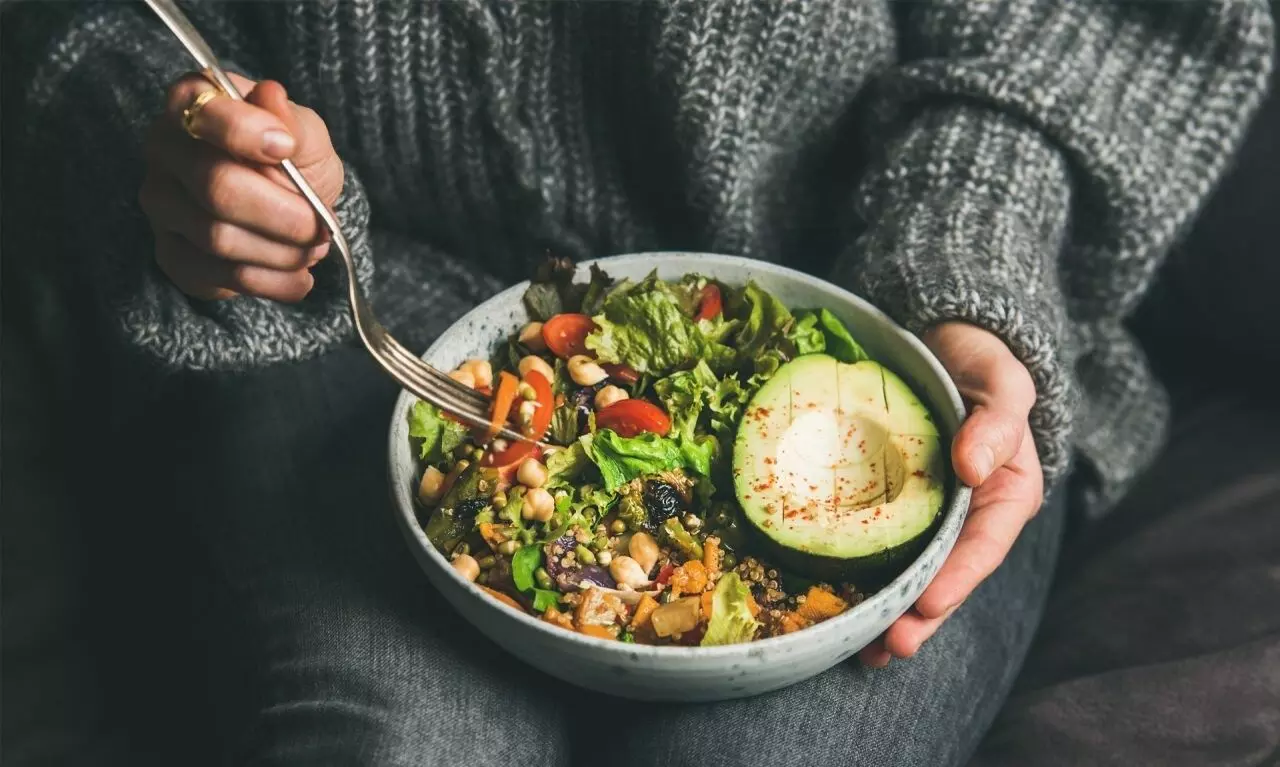Gen-Z Dietary Habits in India: Between Veganism and Vegetarianism
Gen Z diners, especially urban youth, are not sticking to the familiar dal-rice or sabzi-roti templates
By - Anoushka Caroline Williams |
Hyderabad: October 1 marks World Vegetarian Day, and while India has always had a strong vegetarian tradition, a new generation is reshaping what it means to eat meat-free.
Gen Z diners, especially urban youth, are not sticking to the familiar dal-rice or sabzi-roti templates. Instead, they are experimenting with plant-based proteins, global food trends, and Instagram-ready bowls that combine health, sustainability and a sense of discovery.
A Lifestyle, Not Just a Diet
For many young Indians, vegetarianism is no longer only about cultural or religious tradition. “Gen Z sees vegetarianism as part of a larger lifestyle choice that connects with sustainability, fitness and animal welfare,” says Dr. Shailaja Reddy, nutritionist and food culture researcher based in Hyderabad speaking to Newsmeter. “They are influenced by global conversations around plant-based diets but are also reviving local grains, millets and pulses in ways that appeal to their generation.”
Delivery platforms show the trend too. According to data shared by a Hyderabad-based food delivery aggregator, vegetarian orders among customers under 28 years have grown by over 20% in the last year, with categories like smoothie bowls, quinoa salads, and vegan biryanis topping the charts.
Beyond Paneer: New Protein Preferences
Paneer once dominated vegetarian protein, but Gen Z eaters are looking at alternatives. Plant-based mock meats, soy protein powders, and jackfruit are finding space on their plates.
“Jackfruit tacos and soy-based kebabs are some of our fastest-selling dishes,” says Ankit Sharma, plant-based food activist. “The younger crowd is curious to try something different, and they also ask a lot more questions about nutrition than our older customers.”
Even fitness enthusiasts are swapping whey for pea or brown rice protein. “It feels cleaner and sits better on my stomach,” says Harsha R., a 23-year-old athlete who has shifted to plant-based protein shakes.
Global Inspiration, Local Innovation
Social media plays a large role in shaping Gen Z’s choices. The popularity of avocado toast, smoothie bowls and oat milk lattes has filtered into Indian cafés, while many chefs are giving these global ideas a local spin.
“At cafés we like to eat ragi smoothie bowls with jaggery and fruit, which we also love posting online,” says Meera Nambiar, food blogger. “It’s both familiar and aspirational; it taps into the health trend but also uses ingredients our grandmothers cooked with.”
This blending of global and local is what makes the movement perhaps new. A bowl might include quinoa alongside sprouts, or almond butter paired with jaggery-coated makhana.
Digital-First Food Culture
Food is also a social currency for Gen Z. “The plate is as much about taste as it is about how it looks on Instagram or a reel,” notes Dr. Reddy. Bright smoothie bowls, colourful hummus and layered salads are designed for both nutrition and aesthetics.
Apps like Pinterest and TikTok abroad, and Instagram and YouTube in India, drive experiments. Hyderabad alone has seen the rise of cafés marketing themselves as “Instagrammable” while serving entirely vegetarian menus.
From Restriction to Exploration
Unlike earlier generations who often saw vegetarianism as restrictive, Gen Z treats it as an opportunity for exploration. “There is no sense of missing out,” says Ankit Sharma. “They see vegetarian eating as creative, it’s about variety, not limitation.”
Indeed, many young people are “flexitarian” through the week, experimenting with vegan meals or vegetarian days for health and sustainability. On World Vegetarian Day, this spirit reflects a generational shift: vegetarianism is no longer a static tradition, but a dynamic, evolving choice shaped by global trends, local food heritage, and digital culture.
This World Vegetarian Day, the question isn’t whether Gen Z will continue to choose vegetarian food, it’s how far they will go in redefining it for the future.